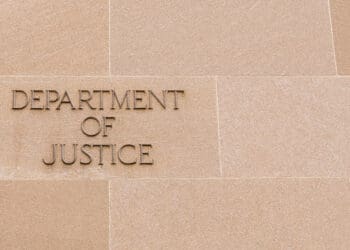New Developments Across the Region
Clifford Chance’s anti-corruption specialists in Asia-Pacific surveyed recent developments in five jurisdictions. Here’s what you need to know.
with co-authors Kirsten Scott, Lei Shi, Peter Coney and Janice Goh
The big picture: Singapore and Australia test drive Deferred Prosecution Agreements (DPAs). Japan and China issue guidance on compliance. And Hong Kong’s anti-corruption chief sounds the alarm on Belt and Road.
Australia
The Commonwealth Attorney-General’s Department has developed a DPA draft code of practice in conjunction with the introduction of the Crimes Legislation Amendment (Combatting Corporate Crime) Bill 2017 (currently before the Australian Senate). The Draft Code, which borrows from a similar code of practice jointly published by the U.K.’s Serious Fraud Office and Crown Prosecution Service, offers some helpful guidance for stakeholders. Topics include how the Commonwealth Director of Public Prosecutions intends to conduct the DPA scheme, insights into negotiations and expectations for corporations engaged in serious corporate crime.
Terms may include cooperation with an investigation, making individuals available for interviews, providing evidence against culpable employees, payment of a financial penalty or admission of an agreed set of facts. For more on Australia’s proposed DPA scheme, read our June CCI article.
China
On May 11, 2018, the PRC State Administration for Market Regulation (SAMR), the major anti-commercial bribery enforcement authority in China, issued the Opinion Regarding Further Strengthening Anti-Unfair Competition Enforcement Actions.
SAMR will focus its attention on commercial bribery in the pharmaceutical, education and utilities sectors from May to October 2018, according to the SAMR Opinion. Hospitals, schools and other entities performing public functions and providing public services will face heightened scrutiny for suspected involvement in commercial bribery.
The SAMR Opinion highlights two scenarios of particular concern: (1) business operators bribing medical institutions to exert influence under the disguise of leasing, donating or providing relevant equipment in order to bundle sales of consumables and equipment, thus undermining market competition; and (2) business operators bribing schools entrusted by parents to purchase school uniforms or meals. Companies engaged in the relevant sectors are well advised to conduct risk assessment of their business practices, enhance their compliance programs and take remediation measures where appropriate.
Hong Kong
The Belt and Road Initiative could lead to anti-corruption risks for companies, warned Hong Kong Independent Commission Against Corruption (ICAC) Commissioner Simon Peh Yun-lu. Speaking at an ICAC exchange session, Peh cautioned Hong Kong investors to remain cautious about countries where corruption and bribery were more prominent. The ICAC “has an active as well as positive part to play and contribute to the Belt and Road Initiative,” Peh said.
Japan
Japanese regulators are putting companies’ compliance programs in the spotlight. Following the publication of the “Principles for Responding to Corporate Scandals” in February 2016, the Japan Exchange Regulation (JPX-R) recently published the “Principles for Preventing Corporate Scandals” (the Preventative Principles). Although not legally binding, listed companies in Japan are “expected to refer to [the Preventative Principles] when implementing measures for preventing corporate scandals.”
According to the JPX-R, “It is crucial for company management, especially top managers (CEOs), to demonstrate integrity and leadership in addressing” compliance issues. The official English translation of the Preventative Principles reads:
Principle 1: Gain a thorough understanding of the actual situation
Principle 2: Fulfil responsibilities with a sense of mission
Principle 3: Encourage two-way communication
Principle 4: Detect noncompliance early and respond swiftly
Principle 5: Execute consistent business management throughout the entire corporate group
Principle 6: Be accountable in view of the relevant supply chain.
Singapore
On March 19, 2018, the Singapore government unveiled a Deferred Prosecution Framework to allow the Public Prosecutor to enter into DPAs with corporations charged or considered for prosecution for an alleged offence under Singapore law. Under a DPA, the Public Prosecutor may agree not to prosecute a corporation in exchange for strict compliance by the corporation with agreed conditions. All DPAs will have to be approved by the High Court, which will consider if the DPA is in the interests of justice and whether its terms are fair, reasonable and proportionate.
Putting It Together
The introduction of a DPA framework in Singapore and Australia will sharpen the enforcement focus against corporate entities. In Singapore, this represents a shift from the current trend of enforcement against individuals. Listed companies in Japan should take heed of the Preventative Principles, which provide a window into the regulators’ thinking, to assess if their own compliance programs are up to scratch.
Is Hong Kong’s Prevention of Bribery Ordinance the next FCPA? The city is already vying to be a financial gateway for China’s cross-border investments as part of the Belt and Road initiative. The ICAC could be well placed to regulate overseas bribery and corruption by Hong Kong companies. Meanwhile, in China, the anti-corruption movement is alive and well with SAMR’s forthcoming inspections in the pharmaceutical, education and utilities sectors. Expect to see some enforcement headlines in the near future.



 Wendy L. Wysong is a partner at
Wendy L. Wysong is a partner at 

![FCPA Enforcement Is Changing; What Does It Mean for Compliance Programs? [Q&A]](https://www.corporatecomplianceinsights.com/wp-content/uploads/2025/02/doj-sign-on-building-350x250.jpg)







